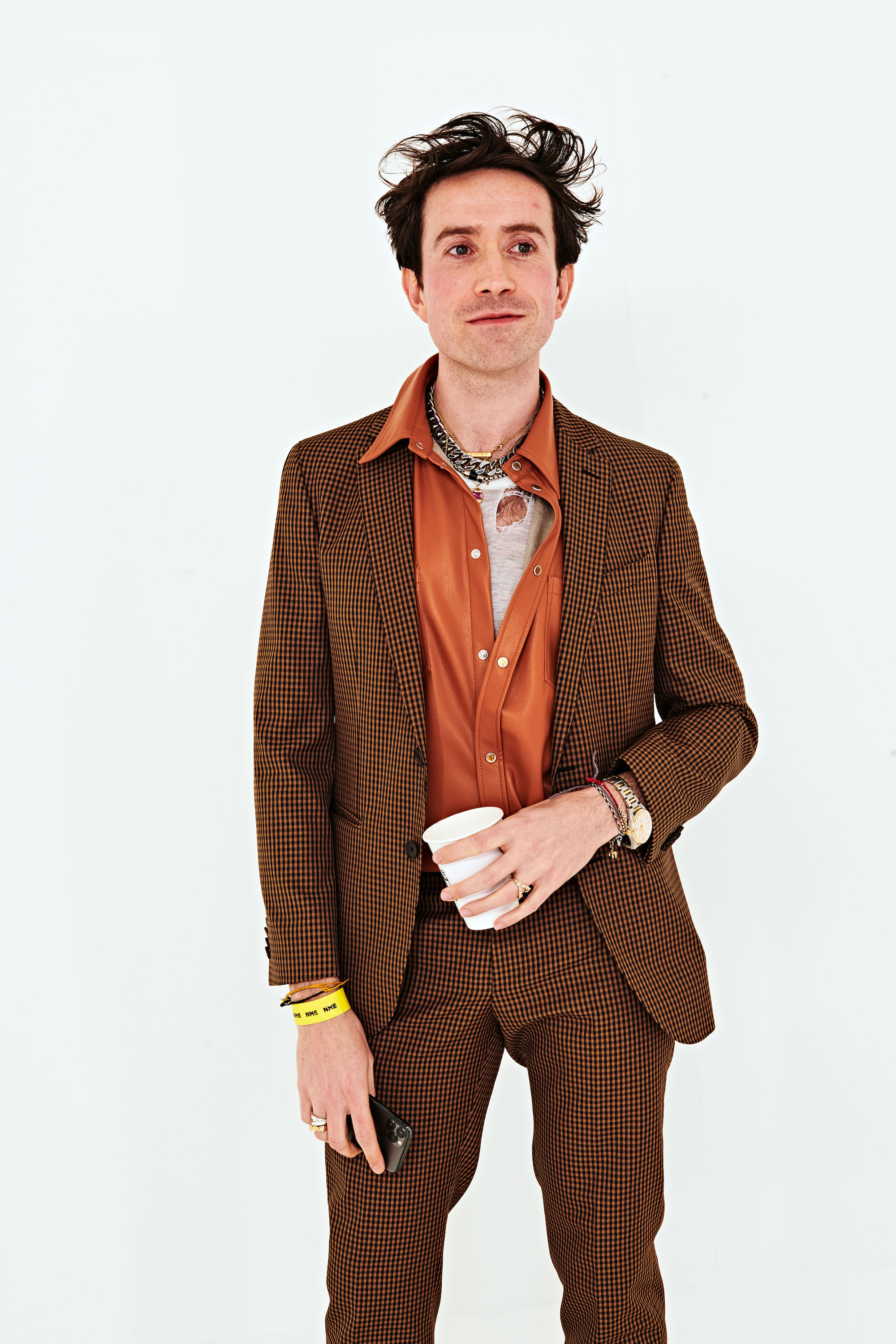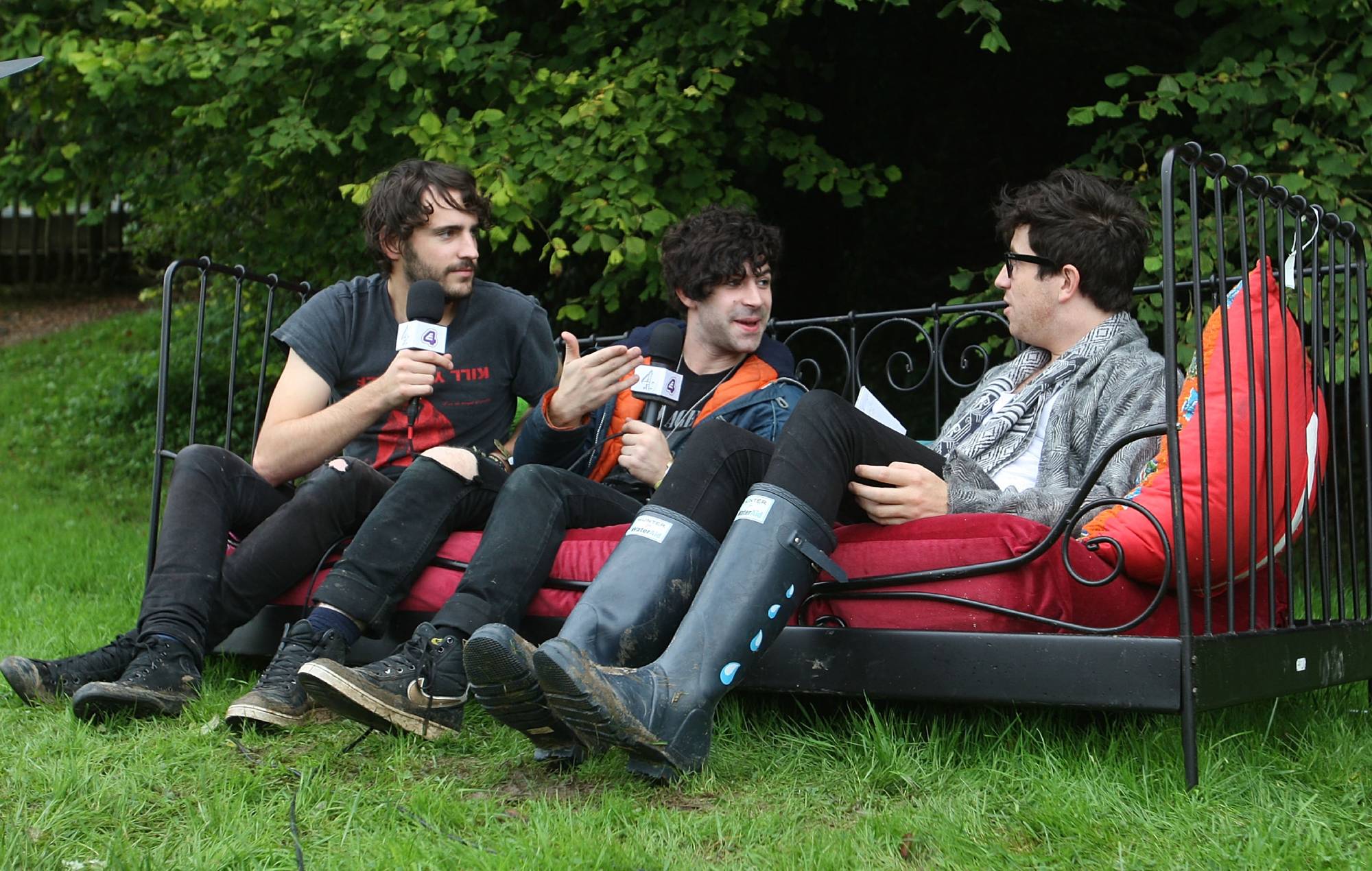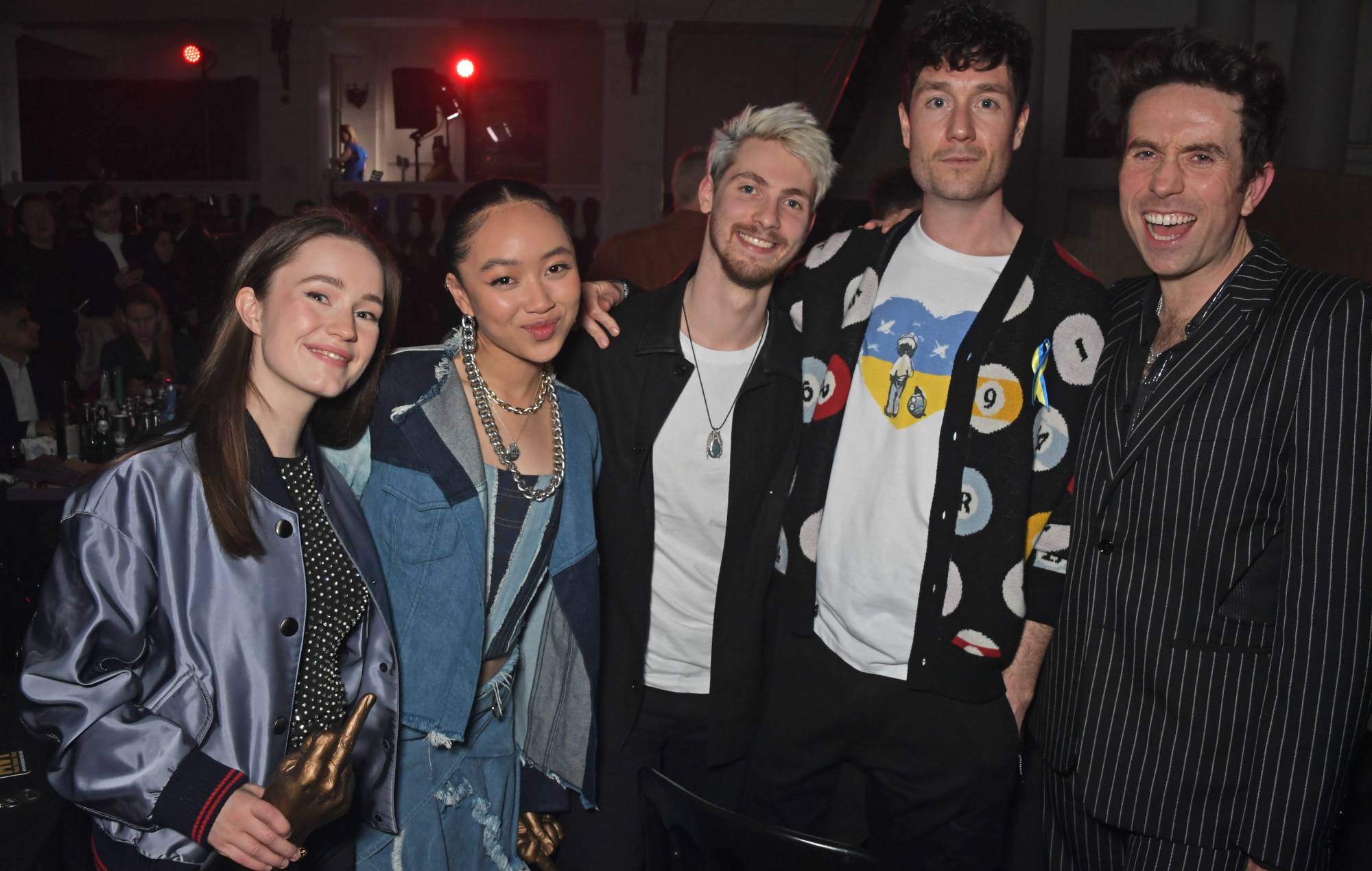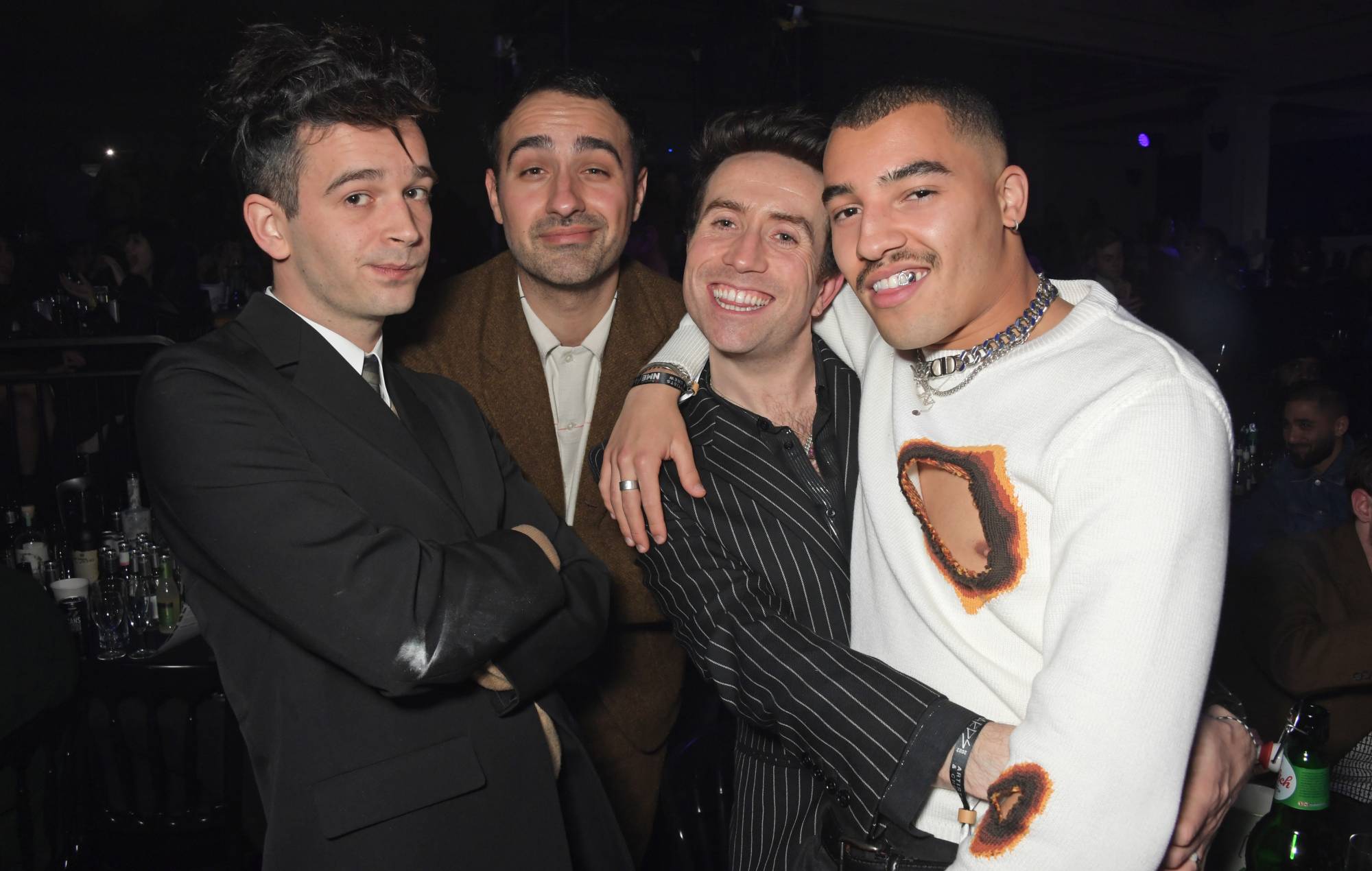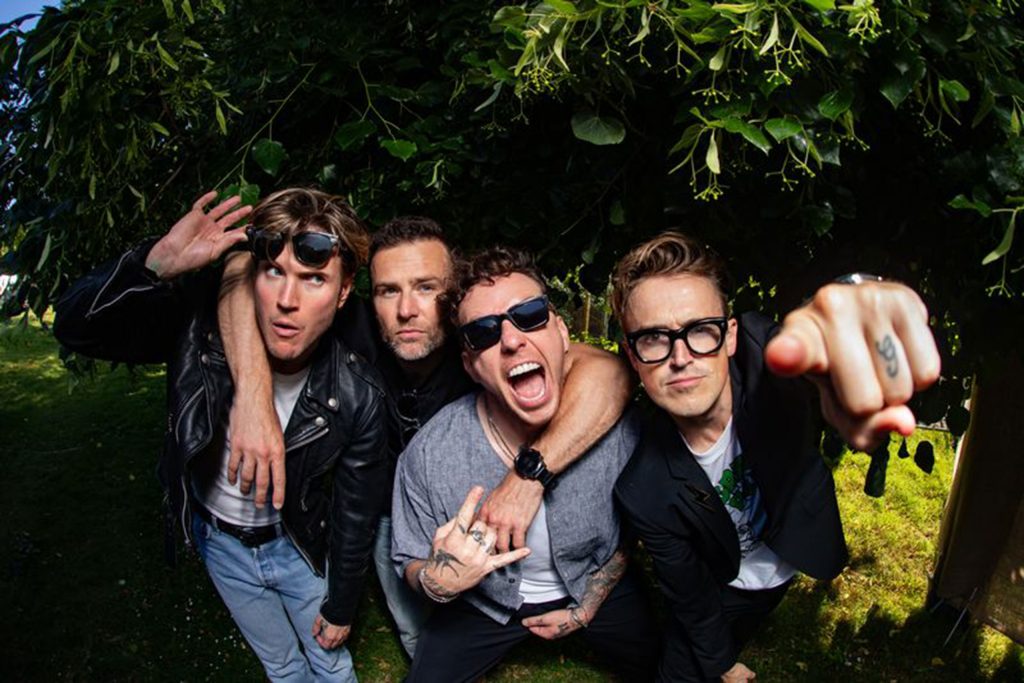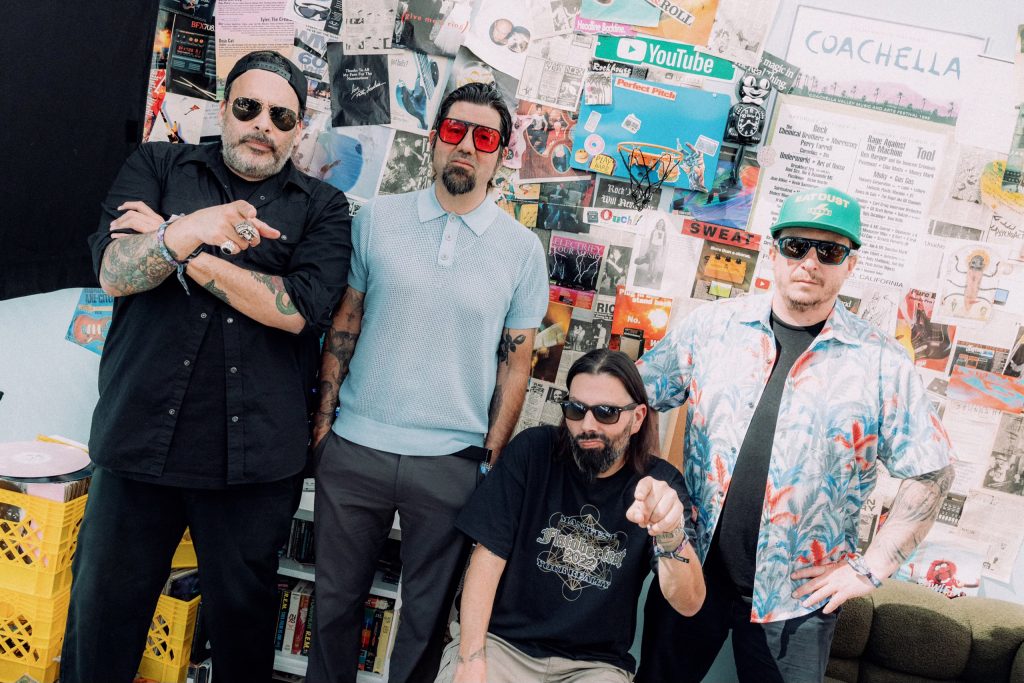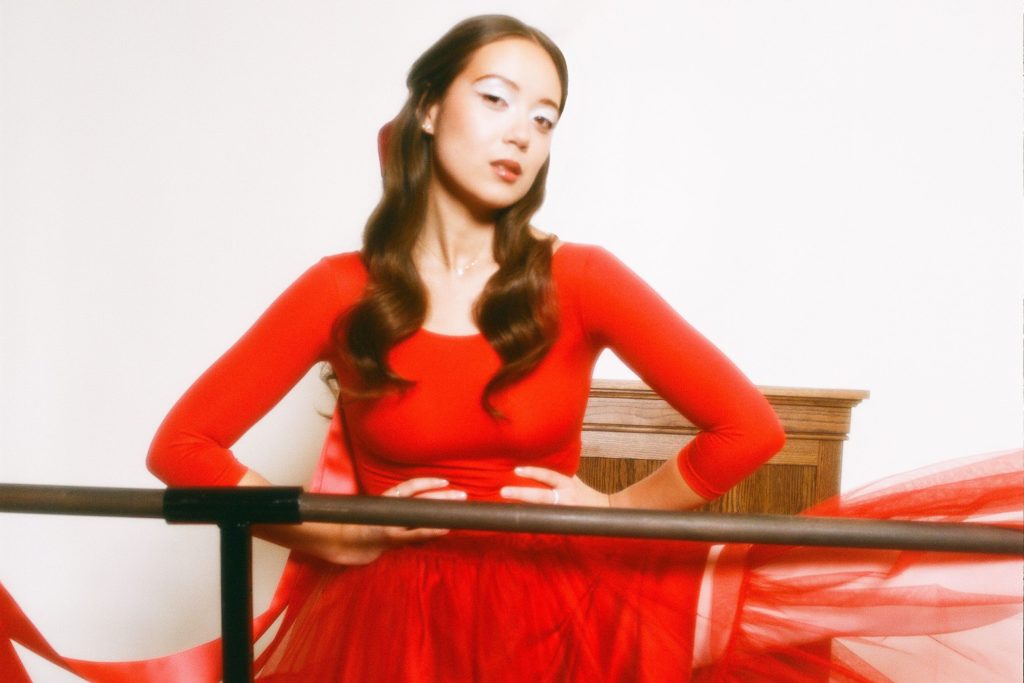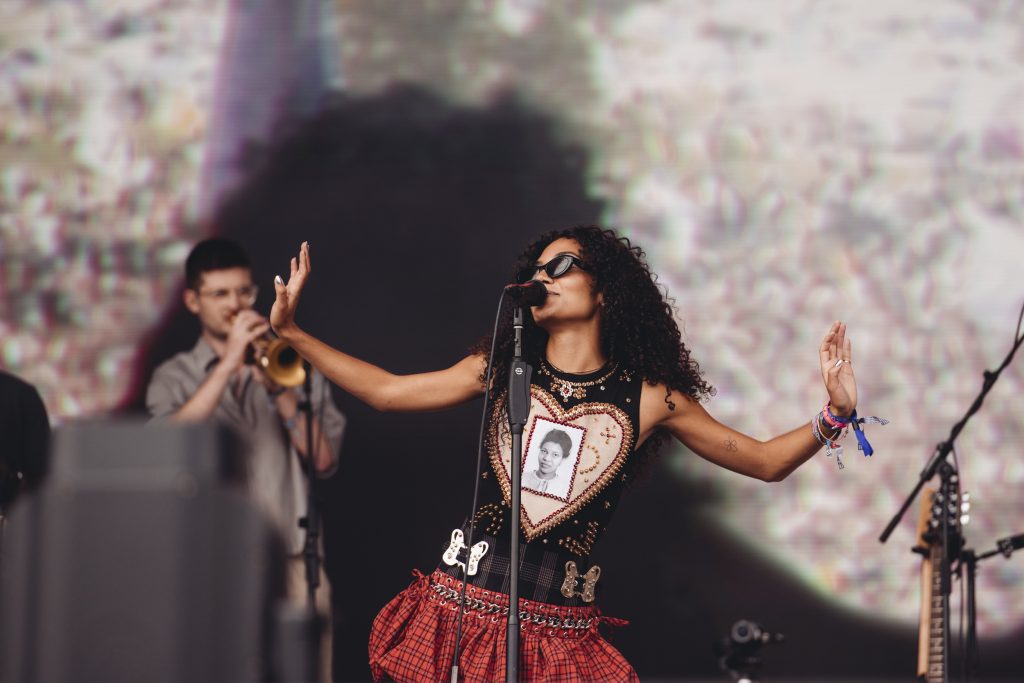Nick Grimshaw Takes Over BBC 6 Music Breakfast Show
Nick Grimshaw has shared his thoughts with NME regarding his new role as the host of the sought-after BBC 6 Music breakfast show, following Lauren Laverne. He also provided insights for aspiring radio DJs.
Last year, Laverne took a break from her radio commitments after revealing her cancer diagnosis. She announced in November that she had received the “all clear,” leading to the unveiling of a new daytime schedule, with her hosting a mid-morning show and Grimshaw stepping into the breakfast slot after previously filling in for her.
“I just want it to start now,” Grimshaw expressed during a meeting with NME in the 6 Music studio a week before his full-time show debuts. “I was initially supposed to host for just a week, and I felt really nervous about it because I love 6 Music. I’ve always been a listener, especially to Lauren. Given the circumstances, I wanted to ensure it was perfect for Lauren and for everyone like me who tunes in daily.”
“I really enjoyed it. I had a week of feeling anxious prior to starting, but once I began, it was fantastic. I was asked to continue for another week, then another, which led to a continuous run from August to January. It all happened quite organically and was a delightful experience. It was the ideal ‘welcome back to radio’ for me, and the best way to kick-start a day: by enjoying three hours of incredible music.”
A Community-Focused Radio Experience
Grimshaw, who has previously hosted the BBC Radio One Breakfast Show, Channel 4’s Freshly Squeezed, and the Sidetracked podcast with Annie Mac, noted that being part of the 6 Music family feels more like a “community” compared to his past endeavors, attributing this to the investment from listeners and the supportive teams behind the station.
“It’s the kind of radio station you set to play and just leave on,” he stated. “Created by music enthusiasts, it holds an inquisitive quality. People want to discover new music, learn about new artists, and engage with intriguing guests, as well as delve into events, exhibitions, and films. It caters to a like-minded audience.”
Check out the full interview with Grimshaw below, where the DJ discusses his journey, his work ethic, the pressures of his new position, and how “people can tell if you don’t love music.”
NME: Hello Nick. Did you find that people were quite possessive and emotional about the 6 Music breakfast show when you stepped into it?
Nick Grimshaw: “Yes and no. I think people were very welcoming. Many, including myself, are emotionally tied to Lauren since she was the first voice we’d hear each morning. Morning radio holds significant importance because it can be a lifeline for many. Any shift in morning radio, like changing a feature’s timing, would spark strong reactions. ‘I can’t believe you’re doing this at 8.10am instead of 7.50am!’”
You might as well throw a grenade in their corn flakes…
“Yeah, exactly! Any alterations in breakfast radio feel substantial since people are deeply entrenched in their routines. It’s likely the most habitual part of anyone’s day: alarm, breakfast, radio, shower. There was indeed some passionate feedback, but I appreciate 6 Music because of how much listeners care. They view it as their station, which it is. I was somewhat prepared for more negativity than I encountered. The audiences were incredibly welcoming and understanding, reaching out with supportive messages toward Lauren; it felt encouraging to know that people cared.”
Do you think people would see through you if you didn’t have your credentials as a music fanatic?
“I think so! It’s evident if someone isn’t passionate about music. People can identify when you don’t truly love music.”
Tell us about your young musical education…
“I was the youngest of three siblings; my brother and sister were 11 and 13 years older than me, so I looked up to them immensely. Even before I could grasp what they were doing—hearing them discuss raving or the iconic Manchester club, The Haçienda—I was under ten, wishing I could join. I had no idea what a rave was, yet I yearned to mimic them.
“My brother introduced me to an array of fantastic music. He loved Joy Division, Echo & The Bunnymen, Kraftwerk, De La Soul, NWA, and plenty of Chicago house. My sister had a penchant for house and electronic tunes, and I vividly recall her driving me around while we listened to ODB and Mariah Carey’s ‘Fantasy.’
“Despite thinking I didn’t enjoy my dad’s music when I was young, that was merely a primal reaction. Once I reached 18, I recognized he had great taste. Though he wasn’t a fan of many artists, the few he adored were phenomenal: Bill Withers, Ella Fitzgerald, Bob Marley, Simon & Garfunkel, Frank Sinatra. When I’d purchase NME or The Face and watch MTV at friends’ homes, he never understood my obsession. He’d often remark, ‘You’ve got enough!’ He was born in 1941, so perhaps owning more seemed trivial to him.”
How big a role did Manchester play as a music city?
“Growing up in Manchester provided a sense of pride associated with going out. Born in ’84, by the time I started secondary school in ’95, Britpop was booming, alongside the legacy of The Haçienda, New Order, and the Madchester scene—elements the city embraced fiercely. Everyone older than me was proud of attending these shows, and then came Oasis.
“I recall my brother gifting me ‘Definitely Maybe,’ which he had gotten from his flatmate, Noel Gallagher. He’d rave about the band, playing it at our place while my dad commented, ‘Poor man’s Beatles!’; this infuriated my brother. The timing was perfect: getting into ‘Definitely Maybe’ and aspiring to sport a Liam Gallagher haircut and parka.”
How did you make that leap from being a music-obsessed kid to wanting to be a DJ and become a conduit for music?
“I struggled with academic achievements during school. I performed adequately, but no clear career path emerged for me. At about 10, I dreamed of becoming a performer, singer, or in a band. My brother gifted me a guitar, but my attention span thwarted my attempts at writing songs, combined with my dreadful singing voice, which unfortunately I still possess.
“Being in my pre-teens, we had a single television with just four or five channels. Thus, I truly cherished radio; it became my escape. I could listen to what my parents didn’t like.
“I was smitten by Radio One, especially with the range of Northern voices it featured. I loved hosts like Chris Evans and Sara Cox. Their breakfast show felt chaotic and free. They shared stories of their night outs and gigs. Then, there was John Peel at night; I genuinely thought I had discovered a hidden gem of a DJ! His show felt wonderfully sincere, filled with the music he loved and casual chatter about the bands. It became an escapist retreat for me in my room.
“When I turned 16, contemplating my career, Sara Cox was on the breakfast show discussing Missy Elliott and The Chemical Brothers. It mirrored my taste perfectly and resonated with my humor. It was just as I started clubbing, solidifying my desire to pursue radio. I didn’t know how to pursue it, but I adored communicating, music, parties, and connecting with people and bands. Deep down, I longed to host the Radio One breakfast show.”
- READ MORE: Soundtrack Of My Life: Nick Grimshaw
How did you get there?
“I needed to gain experience, so I applied for work experience at Radio One, receiving a rejection letter—one my mum actually framed! I sought anything creative that could involve music, applying for every opportunity. Eventually, I secured a position at a music plugging company, working during half terms and holidays while I was in college and university. My job involved summarizing press releases into blurbs, creating stickers for CD mail-outs.
“I found joy in this work, having no family background in creative professions. It was exciting to discover this type of industry existed. When I started organizing radio interviews for bands, I remember thinking, ‘Maybe I could do this.’”
Did you always feel like a career in music and radio was in reach for a kid from Oldham?
“I’m unsure. Youth carries a certain fearlessness, and you often don’t overthink things. I believed it would eventually occur. I was ambitious and sought work experience everywhere—engaged in student radio, assisted at stations, and worked as a runner on TV shows. I presumed all these experiences would be beneficial to understand workplace dynamics.
“I came to realize I needed to be in London to pursue this dream, as there wasn’t an exciting BBC presence in Manchester at that time. I aimed for London to facilitate this Radio One ambition and applied for every possible role, eventually landing an internship at MTV. Although it strayed from radio, it felt significant. I later found myself flyer-distributing for clubs, eventually redirecting back to my radio aspirations.”
When you landed the Radio One Breakfast Show job, did you experience imposter syndrome and fear it could all disappear?
“Absolutely, I felt as though it could vanish at any moment. Yet, I didn’t overly contemplate these feelings at that time. During my first Sunday night show with Annie (Mac), I entered for five minutes to discuss the gigs I attended and the music I was enjoying that week.
“Surprisingly, that instance felt more overwhelming than hosting the breakfast show. By the time I reached that point, I had three years under my belt working nighttime slots, where it seemed unattainable. But when it finally materialized, I reflected on it as if I had summoned it, leading to a half-believable realization that this was the moment I had envisioned since I was 13, working towards since 17. Here I stood at 27, caught between disbelief and acknowledgment of my journey.”
The way that people discover and consume music has changed dramatically over the past 20 years. Has your approach to radio shifted due to this change?
“It has transformed significantly. Back when Chris Moyles hosted breakfast before me, there was no YouTube. Regarding my commentary, I maintain my natural dialogue. The beauty is that when we play something special, listeners can dive into that track immediately. As a listener myself, I increasingly depend on DJs now because I need someone to help me navigate through the excess. I’m looking for a curator, but I’m unsure if it has shifted my broadcasts.”
During the ’00s and early 2010s, there were a plethora of bands, yet the grassroots scene currently faces challenges. How do you view the ability for acts to break through now?
“I could easily delve into despair over the current state of the music scene. I don’t want to seem like a nostalgic old-timer, but back in my day, we’d take chances to see new bands. Growing up in Manchester, then living in Liverpool and moving to London, so many gigs happened nightly for a small fee of around £6 to experience something fresh.
“The recent venue closures are disheartening and concerning. The rate at which they’re closing is alarming; they can’t sustain operations while artists struggle to pay to perform. I’m unsure what needs to change, but it’s looking grim.”
And that’s why we need radio like 6 Music more than ever?
“Absolutely. We have the opportunity to champion emerging talents, playing music from artists who may only have one track available and don’t have a major label behind them. The talent is abundant, and we can showcase a considerable variety of music.”
You’ll be returning to Manchester for the 6 Music Festival this month. What are your feelings about going home with the festival line-up in your new role?
“I’m incredibly excited. I haven’t lived in Manchester since I was 17, and now I’m 40. My family is already pestering me about ticket details. It’s where my love for live music and the club scene began. I’m thrilled to return with a purpose rather than just heading back for a family roast. The lineup is fantastic—Perfume Genius, SBTRKT, Marie Davidson, Mogwai, Ezra Collective—truly reflecting why 6 Music excels in curating diverse and exciting performances, alongside the indie forever club night and Jamz Supernova.”
What music are you enjoying currently?
“Right now, I’m into Kelela’s live album, the John Glacier record, Decius, the new ShyGirl, and a track called ‘Overbit’ by Baalti, which I adore, along with Jacob Elana.”
“Marie Davidson is my current obsession. I even suggested we do a show from my mum’s place while enjoying a roast with her, but she firmly declined, stating, ‘Absolutely no way! I’m not looking like a laughing stock on 6!’”
Nick Grimshaw is set to present the 6 Music Breakfast Show (weekdays 7-10 am) starting from Monday, February 24, and will broadcast from the 6 Music Festival in Greater Manchester between March 26 and 29.
https://www.nme.com/news/music/nick-grimshaw-interview-new-bbc-6-music-breakfast-show-lauren-laverne-3840228?utm_source=rss&utm_medium=rss&utm_campaign=nick-grimshaw-interview-new-bbc-6-music-breakfast-show-lauren-laverne


